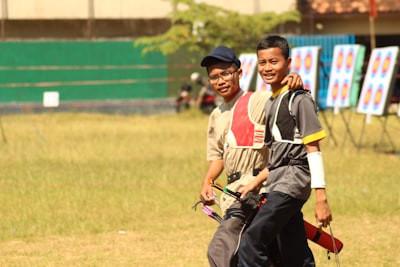How humans develop a sense of humor
Curated from: theconversation.com
Ideas, facts & insights covering these topics:
5 ideas
·1.84K reads
7
Explore the World's Best Ideas
Join today and uncover 100+ curated journeys from 50+ topics. Unlock access to our mobile app with extensive features.
The main element needed for developing humor
Children need socialization to develop a feel for humor. They must understand that they are sharing an experience with another person.
We do this by engaging in eye contact and laughing and sharing reactions together.
42
582 reads
The ability to communicate jokes
Children first need to possess a few basic cognitive skills to communicate jokes, such as imagination, the ability to take a different perspective, and language.
These abilities tend to develop at different rates in children and continue to grow and change throughout adolescence and adulthood.
41
385 reads
Language and humor
Most types of humour involve the realisation of contradiction, or a mismatch, between a concept and a situation. In other words, we laugh when things surprise us because they are out of place. Even simple games like peek-a-boo have an element of surprise where someone suddenly appears out of nowhere.
Researchers think that communication is essential for humor and that humor facilitates the process of learning a language.
45
343 reads
Imagination and humor
Imagination plays a role in incongruity. It helps children to play social roles that they usually wouldn't. Imagination begins to appear in children around 12-18 months, corresponding with the time children start to repeat parent's jokes.
Children start to produce their own jokes around two years of age, with jokes being object-based, such as putting underwear on the head. They often draw inspiration from what they are learning about. This helps them process social rules.
44
267 reads
Perspective and deception
One of the skills that help children develop humor is knowing that people have access to different mental states and that some can have false beliefs or be deceived. When parents pretend not to see a child creeping up to scare them - this is an example of a child understanding deception.
Some research shows that this knowledge is essential for children to understand jokes involving sarcasm and irony. Children typically understand irony around five. Other researchers argue that joking develops through social interaction rather than knowledge of deception.
43
263 reads
IDEAS CURATED BY
Mahesh Anand's ideas are part of this journey:
Learn more about personaldevelopment with this collection
Improving sleep through mindful breathing exercises
Practicing stress reduction and relaxation techniques
Establishing a relaxing bedtime routine
Related collections
Similar ideas
6 ideas
The Link Between Happiness and a Sense of Humor
theatlantic.com
5 ideas
How to laugh more | Psyche Guides
psyche.co
3 ideas
Read & Learn
20x Faster
without
deepstash
with
deepstash
with
deepstash
Personalized microlearning
—
100+ Learning Journeys
—
Access to 200,000+ ideas
—
Access to the mobile app
—
Unlimited idea saving
—
—
Unlimited history
—
—
Unlimited listening to ideas
—
—
Downloading & offline access
—
—
Supercharge your mind with one idea per day
Enter your email and spend 1 minute every day to learn something new.
I agree to receive email updates
